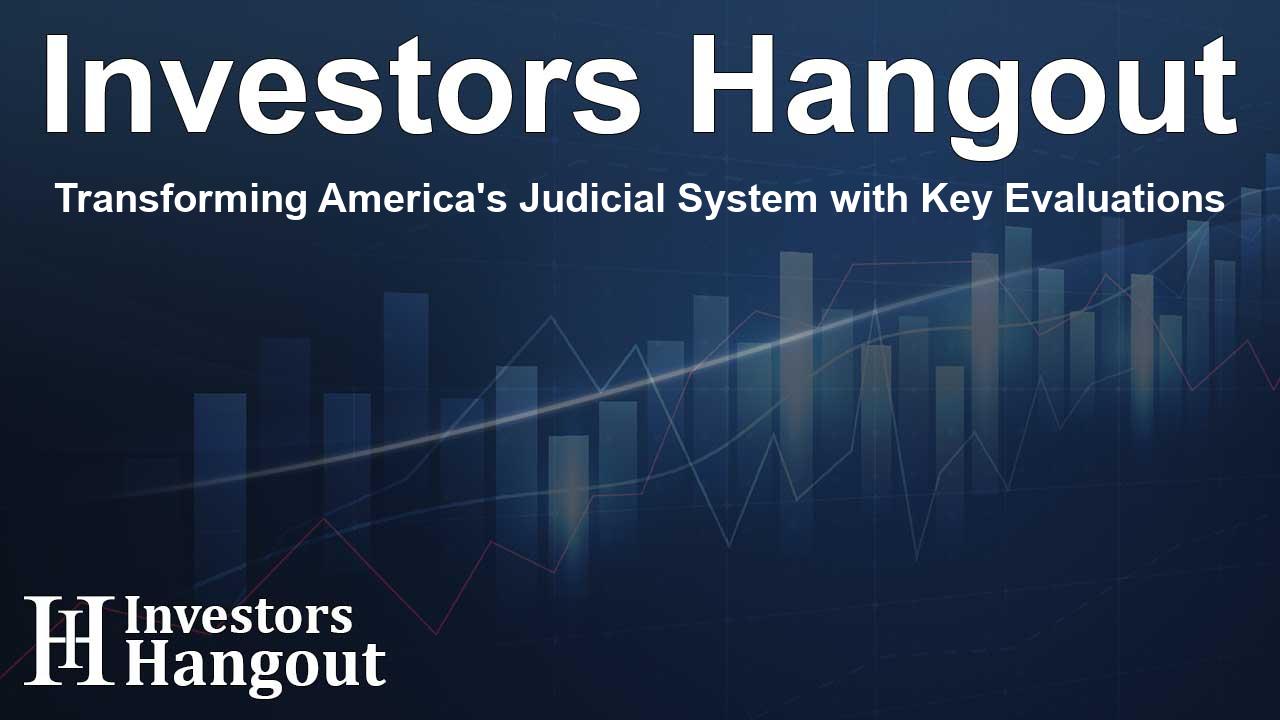Transforming America's Judicial System with Key Evaluations

Transforming the Judicial Landscape
In a significant move towards enhancing the integrity of the judicial system, the Institute for the Advancement of the American Legal System has unveiled its latest initiative, designed to revamp how judges are evaluated in their roles. This newly introduced framework promises not only to hold judges accountable but also to restore public confidence in the courts of law.
A New Vision for Judicial Evaluations
The recommendations from the report, dubbed JPE 2.0, set the stage for a modernized approach to judicial performance evaluations (JPE). Traditional evaluation methods often fall short by focusing primarily on case outcomes. However, this new report pivots towards assessing judges based on crucial criteria that contribute to effective and fair judicial administration, such as communication skills, courtroom management, and adherence to legal standards.
The Importance of Judicial Accountability
In today's climate, where public trust in institutions often wavers, it is more vital than ever to uphold high standards within the judiciary. JPE offers states a powerful mechanism to ensure that judges not only fulfill their responsibilities but do so in a manner that resonates with the community's expectations. It emphasizes the fundamentals of fairness and impartiality, helping to strengthen the backbone of our democracy.
Foundational Recommendations for Change
The institute's report outlines six essential recommendations aimed at refining the JPE process:
- Enhance public trust by promoting transparency in evaluations conducted by unbiased entities.
- Revise evaluation criteria to better align with the modern judicial environment and the diversity of court users.
- Leverage advanced data by integrating contemporary tools and reducing bias through comprehensive survey designs.
- Encourage judicial development by providing valuable feedback that supports professional growth, not just accountability.
- Commit to institutional support for JPE through consistent funding and collaborative efforts.
- Effectively communicate results to ensure that all stakeholders understand the significance of evaluations.
Impact of JPE on Judicial Landscape
These recommendations are crafted from extensive research, which included surveys and collaboration with legal experts and judges across multiple states. The aim is to support states in refining their JPE practices to create a robust system that values both accountability and constructive feedback.
Paving the Way for Future Developments
As of now, 14 states have implemented JPE programs, many of which are already adhering to the principles laid out by IAALS. This new direction not only aids these existing programs but serves as a valuable blueprint for states considering the establishment of or improvements to their own systems for evaluating judicial performance.
Voices on Judicial Reform
As noted by Danielle Kalil, Director of Civil Justice and the Judiciary, modern judicial evaluations require innovative tools that adapt to our evolving society. The emphasis on public accountability and judicial growth is crucial for fostering trust.
Susanne DiPietro, Executive Director of the Alaska Judicial Council, echoes this sentiment, emphasizing that these improvements strengthen democracy by ensuring the judiciary remains fair and accountable.
Frequently Asked Questions
What is the purpose of the JPE 2.0 report?
The JPE 2.0 report aims to enhance judicial performance evaluations by presenting modern recommendations that strengthen accountability and promote public trust.
How does the new evaluation framework differ from traditional methods?
Unlike traditional methods that often focus on case outcomes, the new framework emphasizes essential responsibilities like fairness, professionalism, and integrity in judicial conduct.
What are the main recommendations from the report?
The report outlines six core recommendations including enhancing transparency, revising evaluation criteria, and fostering judicial development through constructive feedback.
Why is judicial accountability important?
Judicial accountability is crucial for maintaining public trust in the legal system, ensuring judges uphold integrity, fairness, and impartiality in their roles.
How can the public engage with the new evaluation processes?
By promoting transparency and effectively communicating evaluation results, the public can better understand and engage with the judicial evaluation processes.
About The Author
Contact Thomas Cooper privately here. Or send an email with ATTN: Thomas Cooper as the subject to contact@investorshangout.com.
About Investors Hangout
Investors Hangout is a leading online stock forum for financial discussion and learning, offering a wide range of free tools and resources. It draws in traders of all levels, who exchange market knowledge, investigate trading tactics, and keep an eye on industry developments in real time. Featuring financial articles, stock message boards, quotes, charts, company profiles, and live news updates. Through cooperative learning and a wealth of informational resources, it helps users from novices creating their first portfolios to experts honing their techniques. Join Investors Hangout today: https://investorshangout.com/
The content of this article is based on factual, publicly available information and does not represent legal, financial, or investment advice. Investors Hangout does not offer financial advice, and the author is not a licensed financial advisor. Consult a qualified advisor before making any financial or investment decisions based on this article. This article should not be considered advice to purchase, sell, or hold any securities or other investments. If any of the material provided here is inaccurate, please contact us for corrections.
